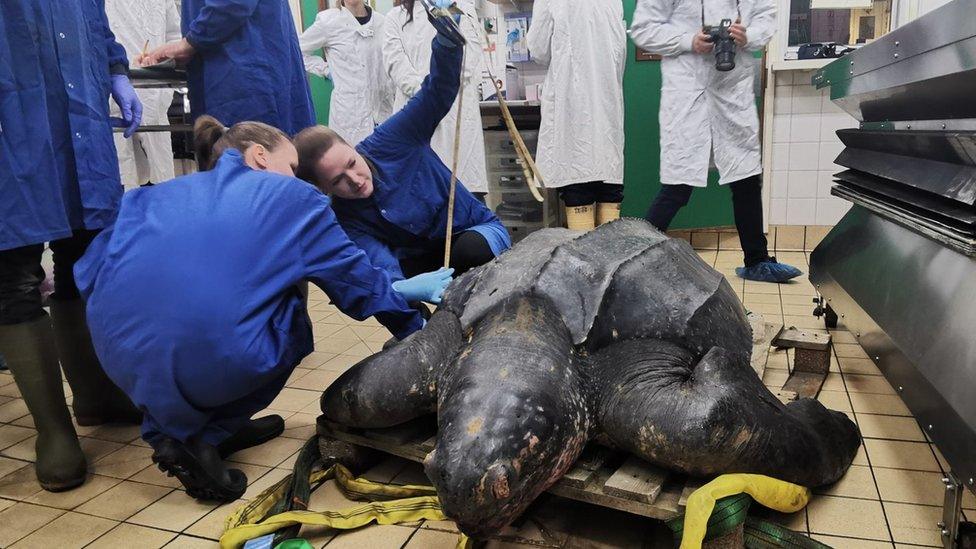Dead 40ft whale washes up on Clacton beach
- Published
Dead whale on Clacton beach 'might be good news story'
A dead whale has washed up on a beach on the Essex coast.
The mammal, believed to be a fin whale, is about 40ft (12m) long, and was first reported in shallow water close to the sand near Clacton at about 05:30 BST.
Dave Bolton, who saw the carcass later, described it as "a very sad sight".
Police said they were working with other organisations to decide how to remove the whale. Officers cordoned off an area opposite the Kingscliff Hotel and have urged people to stay away.
Staff from British Divers Marine Life Rescue, who also went to the scene, said fin whales, which are the second largest animal on the planet, can grow to about 70ft (21m), so this was likely to be a juvenile.
Repeating police warnings to stay away from the area, the charity wrote on Facebook: "We strongly advise people avoid going near it as there is a risk of contracting an infection from contact with its bodily fluids or the body itself."
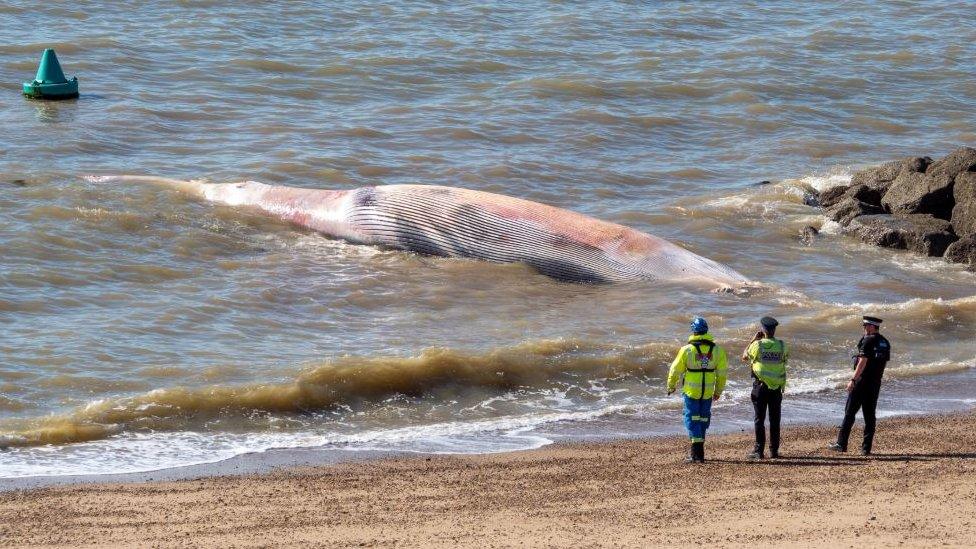
The whale was spotted early on Friday morning
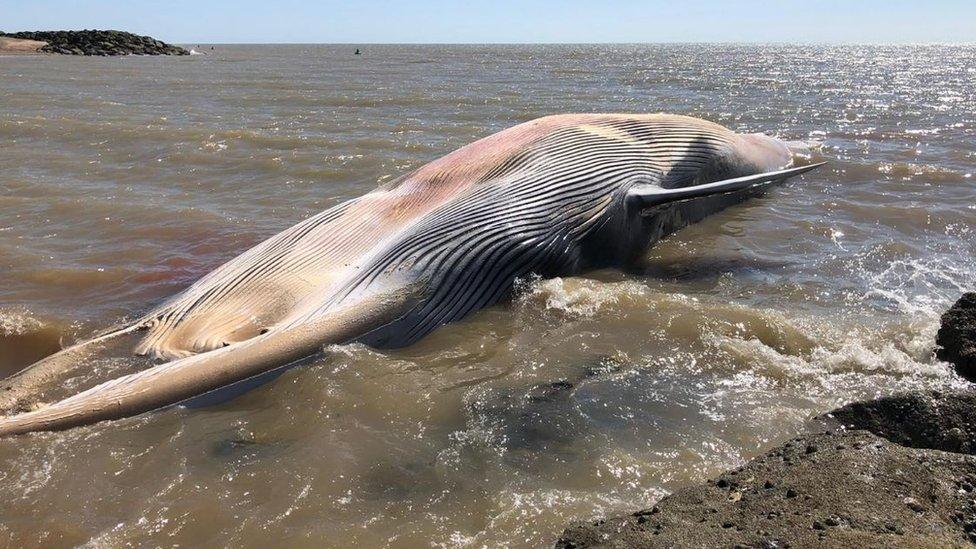
Police said the whale was about 40ft long
Tendring District Council said on Facebook that all beaches between Jaywick and Holland-on-Sea would remain closed for the rest of the day.
Resident Mr Bolton, 83, who photographed the whale from a distance, said: "I was driving along the seafront when I saw lots of people looking over the railings, so I got out and saw the poor animal - it was a very sad sight indeed."
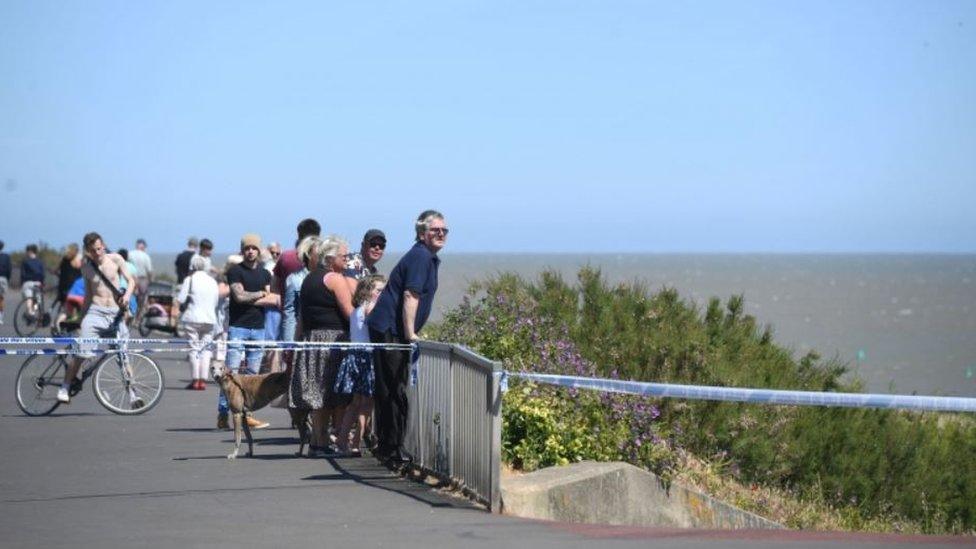
People gathered to see the whale on the beach
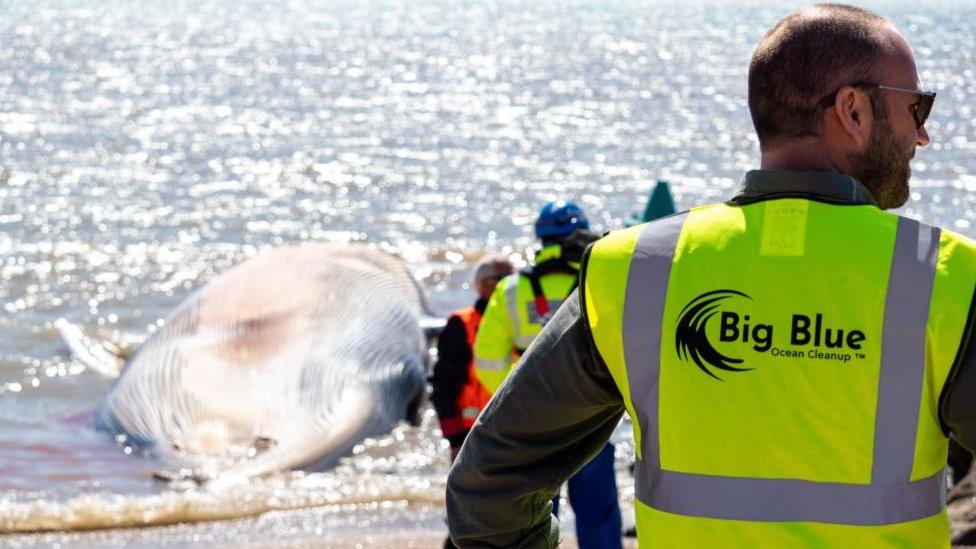
Conservation volunteers are also at the beach
Les Fensom, who saw it while walking along the beach, said he understood the whale had been floating off the coast but "washed in on the tide and was now stuck around a groyne".
"When the tide goes out it will be stuck on the sand, which won't be good."
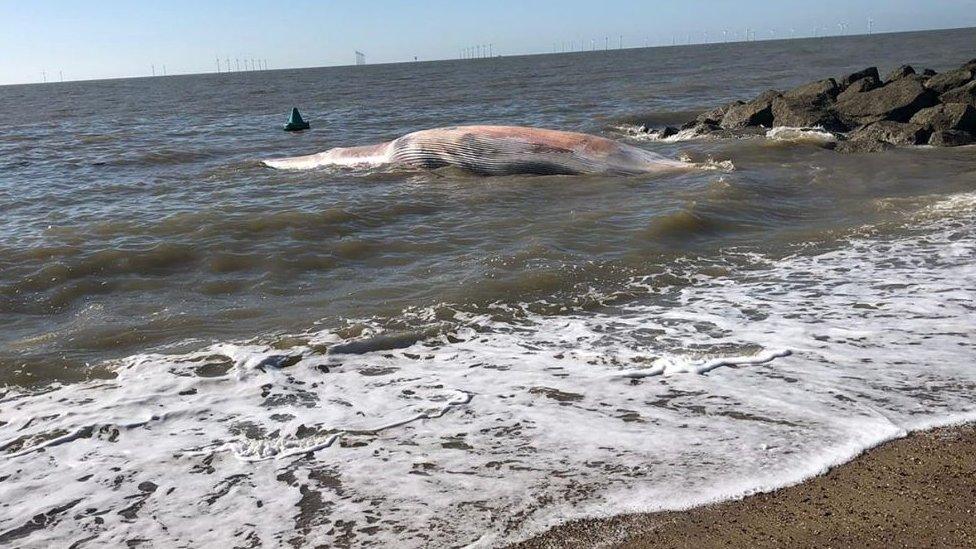
The area has been cordoned off
Rob Deaville, from Zoological Society of London's Cetacean Strandings Investigation Programme, said although its team was not at the site, it was aware of the whale and was "in close contact with colleagues from the local council, British Divers Marine Life Rescue and the Receiver of Wreck about it".
"We're also investigating whether it may be possible to collect any samples from the whale to help inform future areas of research," he added.
Allow X content?
This article contains content provided by X. We ask for your permission before anything is loaded, as they may be using cookies and other technologies. You may want to read X’s cookie policy, external and privacy policy, external before accepting. To view this content choose ‘accept and continue’.
- Published18 February 2020
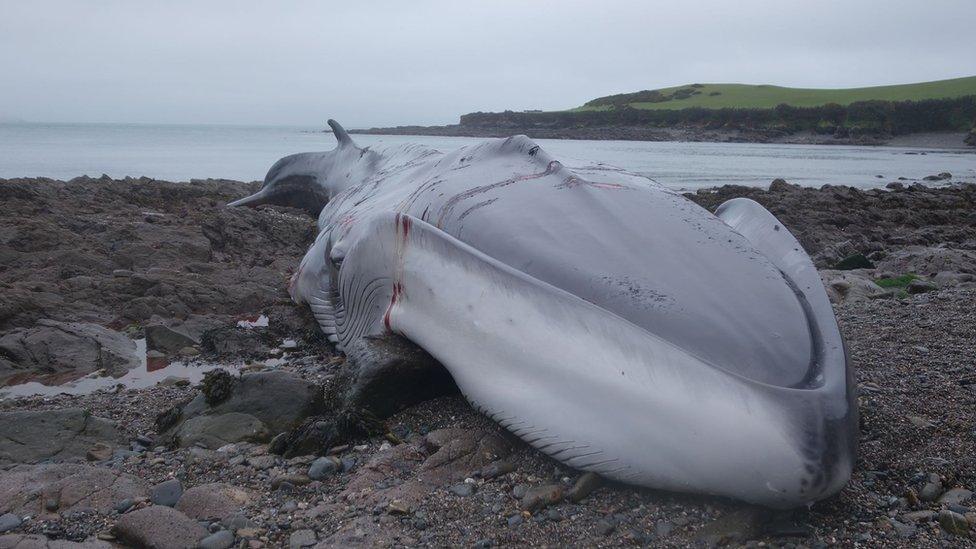
- Published30 October 2019
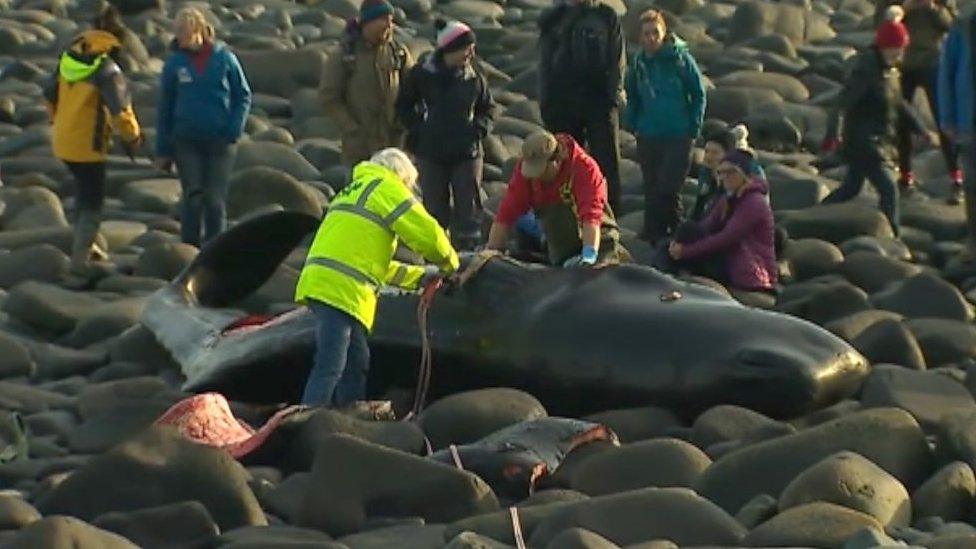
- Published22 December 2019
